- Home
- Linda Castillo
Sworn to Silence Page 2
Sworn to Silence Read online
Page 2
He drops his head slightly, and I know he did. “I thought maybe she was . . . alive, so I rolled her over, checked.”
Not good, but I don’t say anything. T.J. Banks has the makings of a good cop. He’s diligent and serious about his work. But this is his first job in law enforcement. Having been my officer for only six months, he’s green. I’d lay odds this is his first dead body.
We crunch through ankle-deep snow. A sense of dread staggers me when I spot the body. I wish for daylight, but it will be hours before my wish is granted. Nights are long this time of year. The victim is naked. Late teens or early twenties. Dark blonde hair. A slick of blood two feet in diameter surrounds her head. She’d once been pretty, but in death her face is macabre. I can tell she’d originally been lying prone; lividity has set in, leaving one side of her face purple. Her eyes are halfway open and glazed. Her tongue bulges from between swollen lips, and I see ice crystals on it.
I squat next to the body. “Looks like she’s been here a few hours.”
“Starting to get freezer burn,” T.J. notes.
Though I was a patrol officer in Columbus, Ohio, for six years, a homicide detective for two, I feel as if I’m out of my league. Columbus isn’t exactly the murder capital of the world, but like every city it has a dark side. I’ve seen my share of death. Still, the blatant brutality of this crime shocks me. I want to think violent murder doesn’t happen in towns like Painters Mill.
But I know it does.
I remind myself this is a crime scene. Rising, I fan my flashlight beam around the perimeter. There are no tracks other than ours. With a sinking sensation, I realize we’ve contaminated possible evidence. “Call Glock and tell him to get out here.”
“He’s on va—”
My look cuts his words short.
The Painters Mill PD consists of myself, three full-time officers, two dispatchers and one auxiliary officer. Rupert “Glock” Maddox is a former Marine and my most experienced. He earned his nickname because of his fondness for his side arm. Vacation or not, I need him.
“Tell him to bring crime scene tape.” I think about what else we’re going to need. “Get an ambulance out here. Alert the hospital in Millersburg. Tell them we’ll be transporting a body to the morgue. Oh, and tell Rupert to bring coffee. Lot’s of it.” I look down at the body. “We’re going to be here a while.”
Dr. Ludwig Coblentz is a rotund man with a big head, a balding pate and a belly the size of a Volkswagen. I meet him on the shoulder as he slides from his Escalade. “I hear one of your officers had a close encounter with a dead body,” he says grimly.
“Not just dead,” I say. “Murdered.”
He wears khaki trousers and a red plaid pajama top beneath his parka. I watch as he pulls a black bag from the passenger seat. Holding it like a lunchbox, he turns to me, his expression telling me he’s ready to get down to business.
I lead him into the bar ditch. It’s a short walk to the body, but his breathing is labored by the time we climb the fence. “How the hell did a body get all the way out here?” he mutters.
“Someone dumped her or she dragged herself before she died.”
He gives me a look, but I don’t elaborate. I don’t want him walking into this with preconceived notions. First impressions are important in police work.
We duck under the crime scene tape Glock has strung through the trees like toilet paper at Halloween. T.J. has clipped an AC work light to a branch above the body. It doesn’t cast much light, but it’s better than flashlights and will free up our hands. I wish for a generator.
“Scene is secure.” Glock approaches holding two cups of coffee and shoves one at me. “You look like you could use this.”
Taking the Styrofoam cup, I peel back the tab and sip. “God, that’s good.”
He glances at the body. “You figure someone dumped her?”
“Looks that way.”
T.J. joins us, his gaze flicking to the dead woman. “Jeez, Chief, I hate to see her laid out like that.”
I hate it, too. From where we stand I can see her breasts and pubic hair. The woman inside me cringes at that. But there’s nothing I can do about it; we can’t move her or cover her until we process the scene. “Do either of you recognize her?” I ask.
Both men shake their heads.
Sipping my coffee, I study the scene, trying to piece together what might have happened. “Glock, do you still have that old Polaroid?”
“In my trunk.”
“Take some photos of the body and the scene.” I think of the trampled snow and mentally kick myself for disturbing the area. A boot tread might have been helpful. “I want shots of the drag marks, too.” I speak to both men now. “Set up a grid inside the crime scene tape and walk it, starting at the trees. Bag everything you find, even if you think it’s not important. Be sure to photograph everything before you touch it. See if you can find a boot tread. Keep your eyes open for clothing or a wallet.”
“Will do, Chief.” Glock and T.J. start toward the trees.
I turn to Doc Coblentz, who is standing next to the body. “Any idea who she is?” I ask.
“I don’t recognize her.” The doc removes his mittens, slides his chubby fingers into latex gloves. He grunts as he kneels.
“Any idea how long she’s been dead?”
“Hard to tell because of the cold.” He lifts her arm. Red grooves mark her wrist. The surrounding flesh is bruised and smeared with blood. “Her hands were bound,” he says.
I look at the scored flesh. She’d struggled violently to get free. “With wire?”
“That would be my guess.”
Her painted fingernails tell me she’s not Amish. I notice two nails on her right hand are broken to the quick. She’d fought back. I make a mental note to get nail scrapings.
“Rigor has set in,” the doc says. “She’s been dead at least eight hours. Judging from the ice crystals on the mucous membranes, probably closer to ten. Once I get her to the hospital, I’ll get a core body temp. Body temp drops a degree to a degree and a half per hour, so a core will narrow down TOD.” He releases her hand.
His finger hovers above the purple flesh of her cheek. “Lividity in the face here.” He looks up at me. His glasses are fogged. His eyes appear huge behind the thick lenses. “Did someone move her?” he asks.
I nod, but I don’t mention who. “What about cause of death?”
Removing a penlight from his inside pocket, the doctor peels back an eyelid and shines it into her eye. “No petechial hemorrhages.”
“So she wasn’t strangled.”
“Right.” Gently, he sets his hand beneath her chin and shifts her head to the left. Her lips part, and I notice two of her front teeth are broken to the gum line. He turns her head to the right and the wound on her throat gapes like a bloody mouth.
“Throat was cut,” the doc says.
“Any idea what kind of weapon made the wound?”
“Something sharp. With no serration. No obvious sign of tearing. Not a slash or it would be longer and more shallow on the edges. Hard to tell in this light.” Gently, he rolls her body to one side.
My eyes skim the corpse. Her left shoulder is covered with bright red abrasions or possibly burns. More of the same appear on her left buttock. Both knees are abraded as well as the tops of her feet. The skin at both ankles is the color of ripe eggplant. The flesh isn’t laid open like her wrists, but her feet had definitely been bound.
My heart drops into my stomach when I notice more blood on her abdomen, just above her navel. Obscured within the dark smear is something I’ve seen before. Something I’ve imagined a thousand times in my nightmares. “What about that?”
“Good God.” The doctor’s voice quivers. “It looks like something carved into her flesh.”
“Hard to make out what it is.” But in that instant I’m certain we both know. Neither of us wants to say it aloud.
The doc leans closer, so that his face is less than a foot from the wound. �
��Looks like two X’s and three I’s.”
“Or the Roman numeral twenty-three,” I finish.
He looks at me and in his eyes I see the same horror and disbelief I feel clenching my chest. “It’s been sixteen years since I’ve seen anything like it,” he whispers.
Staring at the bloody carving on this young woman’s body, I’m filled with a revulsion so deep I shiver.
After a moment, Doc Coblentz leans back on his heels. Shaking his head, he motions toward the marks on her buttocks, the broken fingernails and teeth. “Someone put her through a lot.”
Outrage and a fear I don’t want to acknowledge sweep through me. “Was she sexually assaulted?”
My heart pounds as he shines the pen light onto her pubis. I see blood on the insides of her thighs and shudder inwardly.
“Looks like it.” He shakes his head. “I’ll know more once I get her to the morgue. Hopefully the son of a bitch left us a DNA sample.”
The fist twisting my gut warns me it isn’t going to be that easy.
Looking down at the body, I wonder what kind of monster could do this to a young woman with so much life ahead. I wonder how many lives will be destroyed by her death. The coffee has gone bitter on my tongue. I’m no longer cold. I’m deeply offended and angered by the brutality of what I see. Worse, I’m afraid.
“Will you bag her hands for me, Doc?”
“Sure.”
“How soon can you do an autopsy?”
Coblentz braces his hands on his knees and shoves himself to his feet. “I’ll shuffle some appointments and do it today.”
We stand in the wind and cold and try in vain not to think about what this woman endured before her death.
“He killed her somewhere else.” I glance at the drag marks. “No sign of a struggle. If he’d cut her throat here, there’d be more blood.”
The doctor nods. “Hemorrhage ceases when the heart stops. She was probably already dead when he dumped her. More than likely the blood here is residual that leaked from that neck wound.”
I think of the people who must have loved her. Parents. Husband. Children. And I am saddened. “This wasn’t a crime of passion.”
“The person who did this took his time.” The doctor’s eyes meet mine. “This was calculated. Organized.”
I know what he’s thinking. I see it in the depths of his eyes. I know because I’m thinking the very same thing.
“Just like before,” the doctor finishes.
CHAPTER 3
Snow swirls in the beams of the headlights as I turn the Explorer onto the long and narrow lane that will take us to the Stutz farm. Next to me, T.J. is reticent. He’s my youngest officer—just twenty-four years old—and more sensitive than he would ever admit. Not that sensitivity in a cop is a bad thing, but I can tell finding the body has shaken him.
“Hell of a way to start the week.” I force a smile.
“Tell me about it.”
I want to draw him out, but I’m not great at small talk. “So, are you okay?”
“Me? I’m good.” He looks embarrassed by my question and troubled by the images I know are still rolling around inside his head.
“Seeing something like that . . .” I give him my best cop-to-cop look. “It can be tough.”
“I’ve seen shit before,” he says defensively. “I was first on the scene when Houseman had that head on and killed that family from Cincinnati.”
I wait, hoping he’ll open up.
He looks out the window, wipes his palms on his uniform slacks. In my peripheral vision I see him glance my way. “You ever see anything like that, Chief?”
He’s asking about the eight years I was a cop in Columbus. “Nothing this bad.”
“He broke her teeth. Raped her. Cut her throat.” He blows out a breath, like a pressure cooker releasing steam. “Damn.”
At thirty, I’m not that much older than T.J., but glancing over at his youthful profile, I feel ancient. “You did okay.”
He stares out the window and I know he doesn’t want me to see his expression. “I screwed up the crime scene.”
“It’s not like you were expecting to walk up on a dead body.”
“Footwear impressions might have been helpful.”
“We still might be able to lift something.” It’s an optimistic offering. “I walked in those drag marks, too. It happens.”
“You think Stutz knows something about the murder?” he asks.
Isaac Stutz and his family are Amish. A culture I’m intimately acquainted with because I was born Amish in this very town a lifetime ago.
I make an effort not to let my prejudices and preconceived notions affect my judgment. But I know Isaac personally, and I’ve always thought of him as a decent, hardworking man. “I don’t think he had anything to do with the murder,” I say. “But someone in the family might have seen something.”
“So we’re just going to question him?”
“I’m going to question him.”
That elicits a smile. “Right,” he says.
The lane curves left and a white clapboard farmhouse looms into view. Like most Amish farms in the area, the house is plain but well kept. A split rail fence separates the backyard from a chicken coop and pen. I see a nicely shaped cherry tree that will bear fruit in the spring. Beyond, a large barn, grain silo and windmill stand in silhouette against the predawn sky.
Though it’s not yet five A.M., the windows glow yellow with lantern light. I park next to a buggy and kill the engine. The sidewalk has been cleared of snow and we take it to the front door.
The door swings open before we knock. Isaac Stutz is a man of about forty years. Sporting the traditional beard of a married Amish man, he wears a blue work shirt, dark trousers and suspenders. His eyes flick from me to T.J. and back to me.
“I’m sorry to bother you so early, Mr. Stutz,” I begin.
“Chief Burkholder.” He bows his head slightly and steps back, opening the door wider. “Come in.”
I wipe my feet on the rug before entering. The house smells of coffee and frying scrapple, an Amish breakfast staple consisting of cornmeal and pork. The kitchen is dimly lit, but warm. Ahead, a mantel clock and two lanterns rest on a homemade shelf built into the wall. Lower, three straw hats hang on wood dowels. I look beyond Isaac and see his wife, Anna, at the cast-iron stove. She is garbed in the traditional organdy kapp and a plain black dress. She glances at me over her shoulder. I make eye contact, but she looks away. Twenty years ago, we played together. This morning, I’m a stranger to her.
The Amish are a close-knit community with a foundation built on worship, hard work and family. Though eighty percent of Amish children join the church when they turn eighteen, I’m one of the few who didn’t. As a result, I was put under the bann. Contrary to popular belief, shunning is not a type of punishment. In most cases, it’s thought to be redemptive. Tough love, if you will. But it didn’t bring me back. Because of my defection, many Amish do not wish to associate with me. I accept that because I understand the ideology of the culture, and I don’t begrudge them in any way.
T.J. and I enter the house. Always respectful, T.J. removes his hat.
“Would you like coffee or hot tea?” Isaac asks.
I’d give up my side arm for a cup of hot coffee, but decline the offer. “I’d like to ask you a few questions about something that happened last night.”
He motions toward the kitchen. “Come sit next to the stove.”
Our boots thud hollowly on the hardwood floor as the three of us move into the kitchen. A rectangular wood table covered with a blue-and-white-checkered tablecloth dominates the room. In its center, a glass lantern flickers, casting yellow light onto our faces. The smell of kerosene reminds me of my own childhood home, and for a moment I’m comforted by that.
Wood scrapes against the floor as the three of us pull out chairs and sit. “We received a call last night about some of your livestock,” I begin.
“Ah. My milk cows.” Isaac shakes
his head in self-deprecation, but I can tell by his expression he knows I didn’t come here at five A.M. to censure him about a few wayward cattle. “I have been working on the fence.”
“This isn’t about the livestock,” I say.
Isaac looks at me and waits.
“We found the body of a young woman in your field last night.”
Across the room, Anna gasps. “Mein gott.”
I don’t look at her. My attention is focused on Isaac. His reaction. His body language. His expression.
“Someone died?” His eyes widen. “In my field? Who?”
“We haven’t identified her yet.”
I see his mind spinning as he tries to absorb the information. “Was it an accident? Did she succumb to the cold?”
“She was murdered.”
He leans back in the chair as if pushed by some invisible force. “Ach! Yammer.”
I glance toward his wife. She meets my gaze levelly now, her expression alarmed. “Did either of you see anything unusual last night?” I ask.
“No.” He answers for both of them.
I almost smile. The Amish are a patriarchal society. The sexes are not necessarily unequal, but their roles are separate and well defined. Usually, this doesn’t bother me. This morning, I’m annoyed. The unspoken Amish convention does not apply when it comes to murder, and it’s my job to make that clear. I give Anna a direct look. “Anna?”
She approaches, wiping her chapped hands on her apron. She’s close to my age and pretty, with large hazel eyes and a sprinkling of freckles on her nose. Plain suits her.
“Is she Amish?” she asks in Pennsylvania Dutch, the Amish dialect.
I know the language because I used to speak it, but I answer in English. “We don’t know,” I tell her. “Did you see any strangers in the area? Any vehicles or buggies you didn’t recognize?”
Anna shakes her head. “I didn’t see anything. It gets dark so early this time of year.”
It’s true. January in northeastern Ohio is a cold and dark month.
“Will you ask your children?”

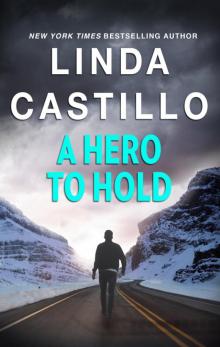 A Hero to Hold
A Hero to Hold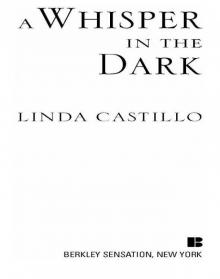 A Whisper in the Dark
A Whisper in the Dark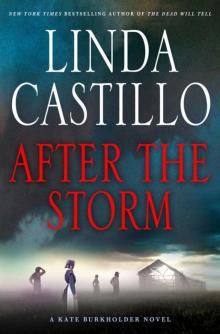 After the Storm
After the Storm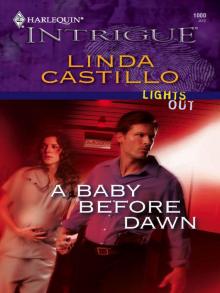 A Baby Before Dawn
A Baby Before Dawn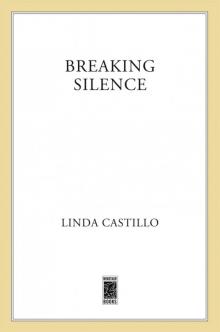 Breaking Silence
Breaking Silence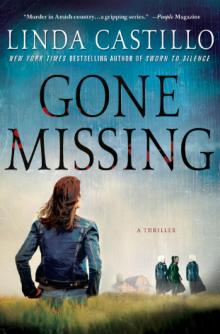 Gone Missing
Gone Missing Long Lost
Long Lost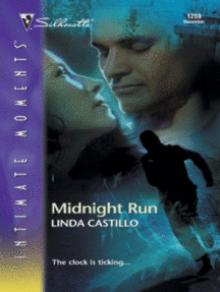 Midnight Run
Midnight Run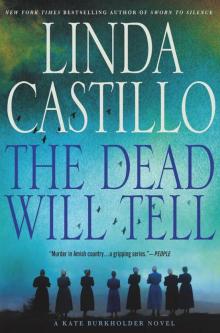 The Dead Will Tell
The Dead Will Tell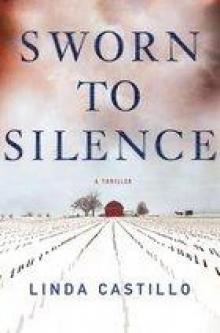 Sworn to Silence
Sworn to Silence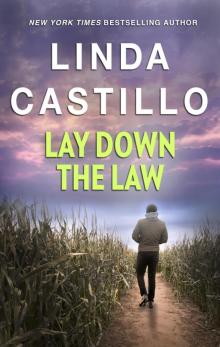 Lay Down the Law
Lay Down the Law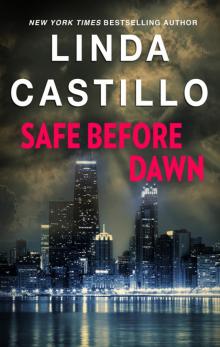 Safe Before Dawn
Safe Before Dawn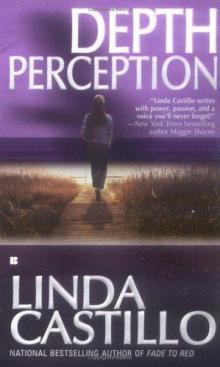 Depth Perception
Depth Perception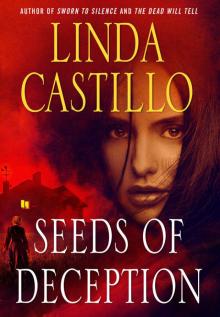 Seeds of Deception
Seeds of Deception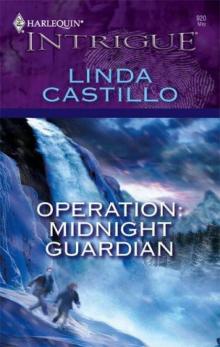 Operation: Midnight Guardian
Operation: Midnight Guardian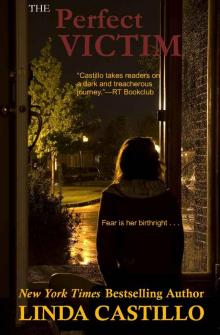 The Perfect Victim
The Perfect Victim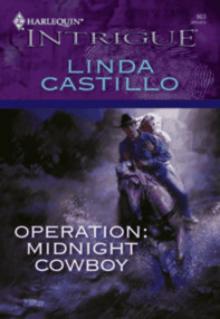 Operation: Midnight Tango
Operation: Midnight Tango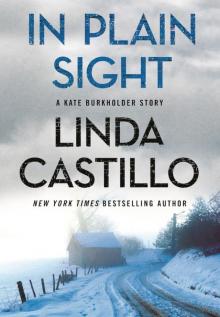 In Plain Sight (Kate Burkholder)
In Plain Sight (Kate Burkholder)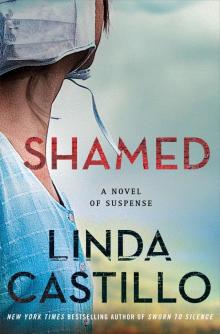 Shamed
Shamed Fallen
Fallen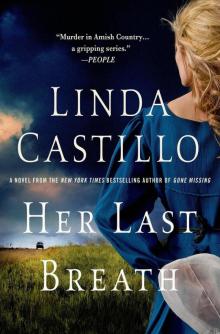 Her Last Breath
Her Last Breath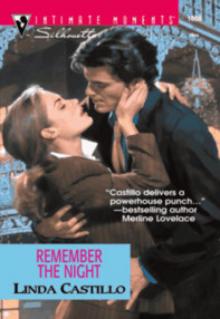 Remember the Night (Men in Blue)
Remember the Night (Men in Blue) Dead Reckoning
Dead Reckoning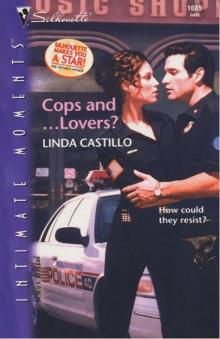 Cops and ... Lovers?
Cops and ... Lovers? The Pact
The Pact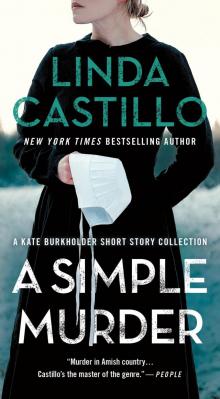 A Simple Murder
A Simple Murder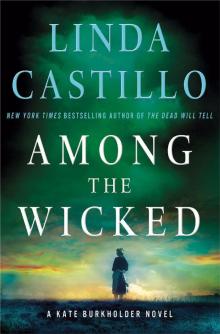 Among the Wicked
Among the Wicked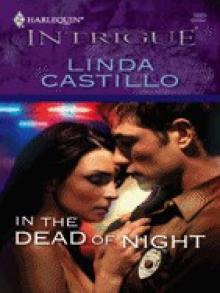 In the Dead of Night
In the Dead of Night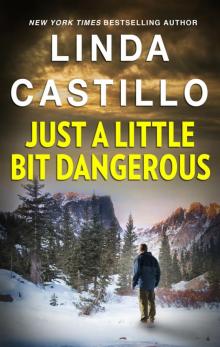 Just a Little Bit Dangerous
Just a Little Bit Dangerous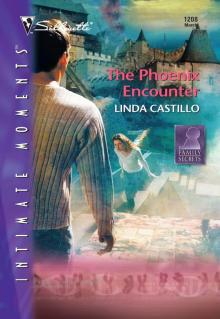 The Phoenix Encounter
The Phoenix Encounter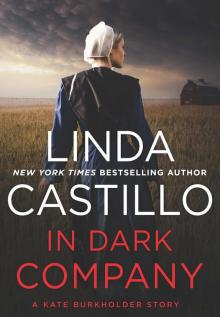 In Dark Company
In Dark Company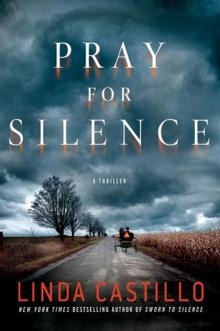 Pray for Silence
Pray for Silence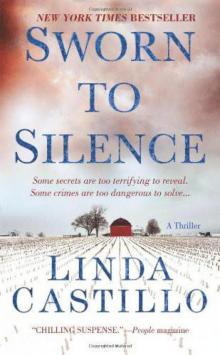 Kate Burkholder 01-Sworn to Silence
Kate Burkholder 01-Sworn to Silence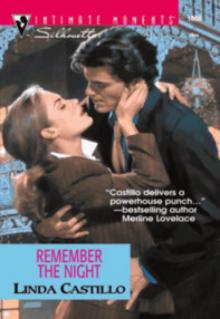 Remember the Night
Remember the Night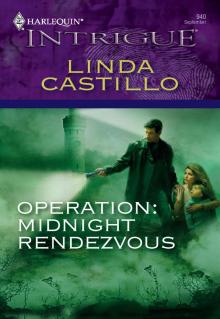 Operation: Midnight Rendezvous
Operation: Midnight Rendezvous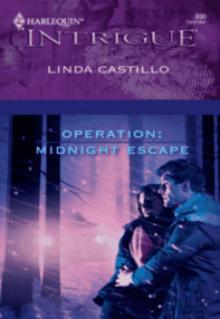 Operation: Midnight Escape
Operation: Midnight Escape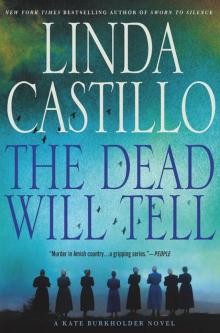 The Dead Will Tell: A Kate Burkholder Novel
The Dead Will Tell: A Kate Burkholder Novel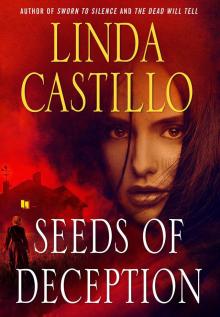 Seeds of Deception: A Kate Burkholder Short Story
Seeds of Deception: A Kate Burkholder Short Story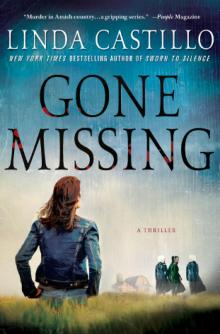 Gone Missing (Kate Burkholder 4) kb-4
Gone Missing (Kate Burkholder 4) kb-4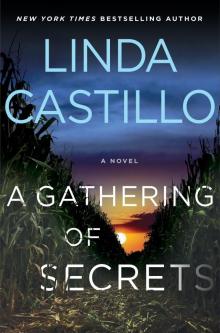 A Gathering of Secrets
A Gathering of Secrets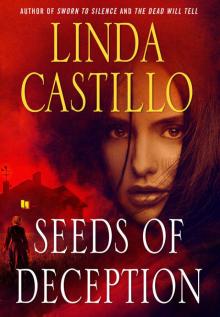 Seeds of Deception: A Kate Burkholder Short Story (Kindle Single)
Seeds of Deception: A Kate Burkholder Short Story (Kindle Single)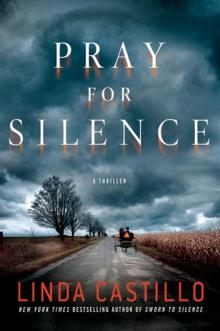 Pray for Silence kb-2
Pray for Silence kb-2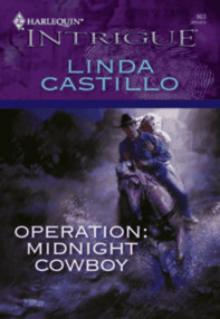 Operation: Midnight Cowboy
Operation: Midnight Cowboy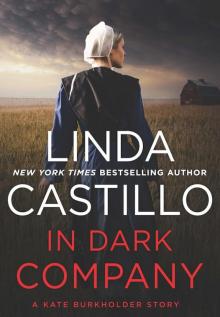 In Dark Company_A Kate Burkholder Short Mystery
In Dark Company_A Kate Burkholder Short Mystery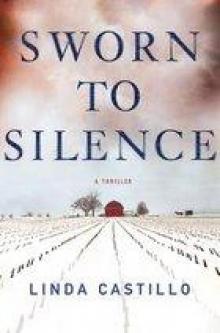 Sworn to Silence kb-1
Sworn to Silence kb-1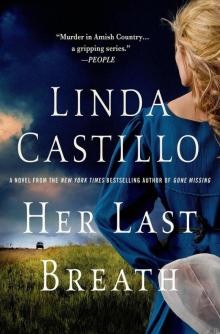 Her Last Breath: A Kate Burkholder Novel
Her Last Breath: A Kate Burkholder Novel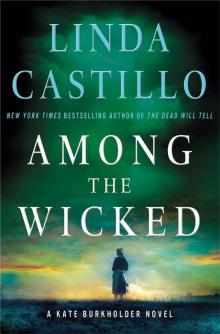 Among the Wicked: A Kate Burkholder Novel
Among the Wicked: A Kate Burkholder Novel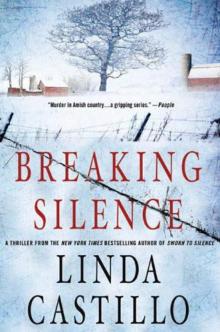 Breaking Silence kb-3
Breaking Silence kb-3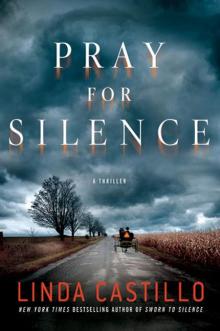 Kate Burkholder 2 - Pray for Silence
Kate Burkholder 2 - Pray for Silence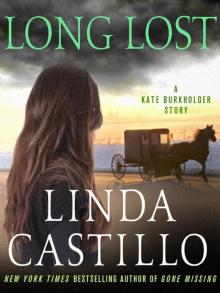 Long Lost: A Kate Burkholder Short Story
Long Lost: A Kate Burkholder Short Story